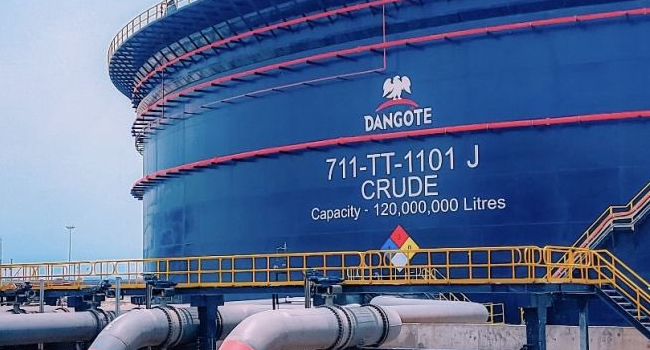Pan African financial institution, United Bank for Africa (UBA) Plc, has said that the recently embarked transformation of its processes is to ensure that customers’ expectations are not only met but surpassed while enjoying seamless and world-class banking services.
In ensuring this, the bank has embarked on several initiatives that include streamlining and automating its processes, upgrading technology, training, and rewarding staff excellence all towards ensuring that customers enjoy the very best of services.
UBA’s Head of Operations, Alex Alozie, who explained this during a virtual media parley on Wednesday, October 7, 2020, to mark the 2020 Customer Service Week, said the bank has intensified its focus on putting the customer first whilst still reaffirming its leadership position.
Alozie said that in line with this year’s theme, the ‘Dream Team’, which embodies UBA’s core goals, the bank has recorded considerable milestones in its journey.

He said, “In the last one year we have embarked on an intensive drive to transform our services across all service touchpoints including but not limited to banking halls, channels – internet, mobile, USSD, etc in Nigeria, Africa, and territories where we operate. We have ensured that our customers enjoy self-service, where they can carry out their transactions seamlessly on their devices, without visiting the banking hall. This has further boosted customers’ confidence as the services provide ease and convenience, especially during the Covid-19 pandemic.
“Honestly, I will say that the pandemic brought out the best of us. With newly improved products like UBA Connect – where our customers can carry out transactions from anywhere in the world – and our recently improved Mobile App, our uptime has improved significantly, and our branch operations have also recorded considerable improvement. All these are the outcome of the transformation journey which we embarked upon,” Alozie noted.
He added that there have been cases of failed transactions, and the bank has taken relevant corrective and preventive actions for service improvement.
UBA’s Group Head, Marketing and Customer Experience, Michelle Nwoga, pointed out that the bank is focused on being more intentional in the quality of service delivery to customers. She added that strategic initiatives have been implemented to deliver a differentiated experience to customers across all service touchpoints.
According to her, UBA is keen on meeting the demands of today’s diversified customer base by focusing on innovation, process re-engineering, experience optimization, and technology upgrade, etc. This is all in our effort to improve our service delivery, improve our customers’ satisfaction, and deepen our market share.
“Apart from this, we have also embarked on thoroughly equipping our people to deliver exceptional service, while also leveraging on data for insight to guide business decision making. We are no longer a one-size-fits-all organization, as we now personalize services based on individual specific demands; this is largely because we know that the customer is the only one that matters, and we tailor all our activities in line with their expectations,” Nwoga noted.
Customer Service Week is celebrated annually all over the world and recognizes the importance of customer service and seeks to show appreciation to the staff who serve and support customers with the highest degree of care and professionalism.
United Bank for Africa Plc is a leading Pan-African financial institution, offering banking services to more than twenty-one million customers, across over 1,000 business offices and customer touchpoints, in 20 African countries.
With a presence in the United States of America, the United Kingdom, and France, UBA is connecting people and businesses across Africa through retail; commercial and corporate banking; innovative cross-border payments and remittances; trade finance, and ancillary banking services.

 BIG STORY4 days ago
BIG STORY4 days ago
 BIG STORY1 day ago
BIG STORY1 day ago
 BIG STORY4 days ago
BIG STORY4 days ago
 BIG STORY1 day ago
BIG STORY1 day ago
 BIG STORY3 days ago
BIG STORY3 days ago
 BIG STORY2 days ago
BIG STORY2 days ago
 BIG STORY3 days ago
BIG STORY3 days ago
 BIG STORY1 day ago
BIG STORY1 day ago

























